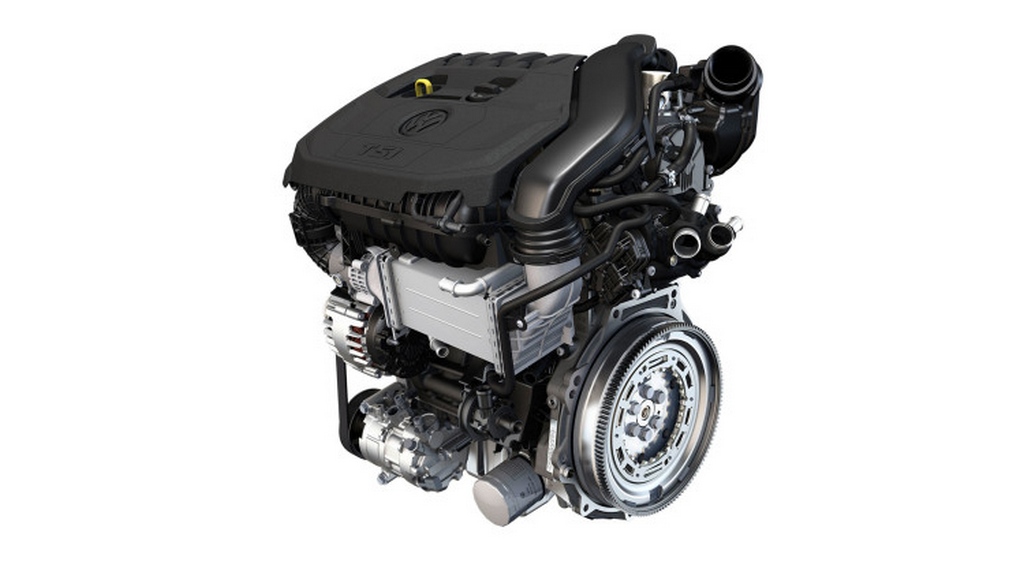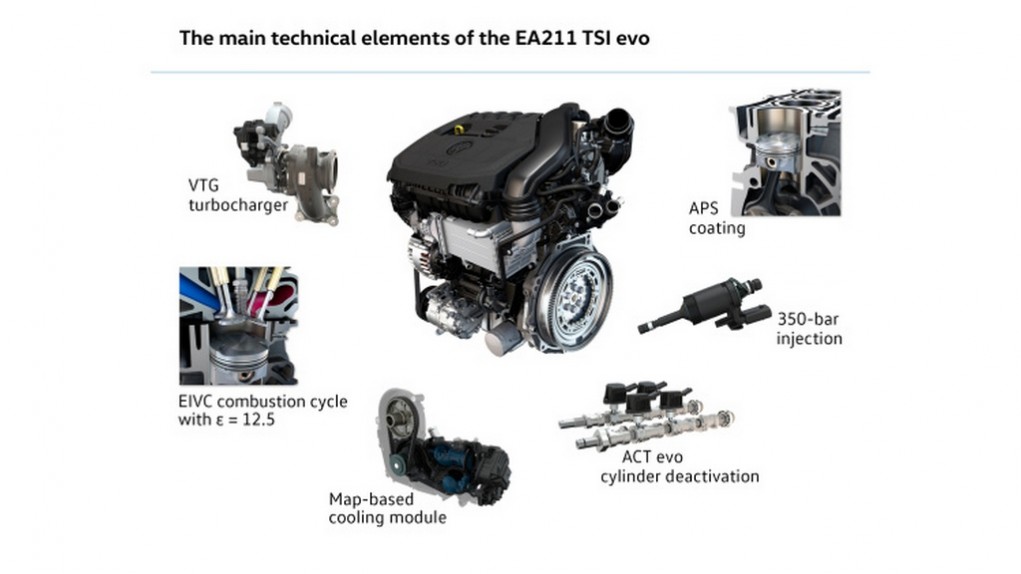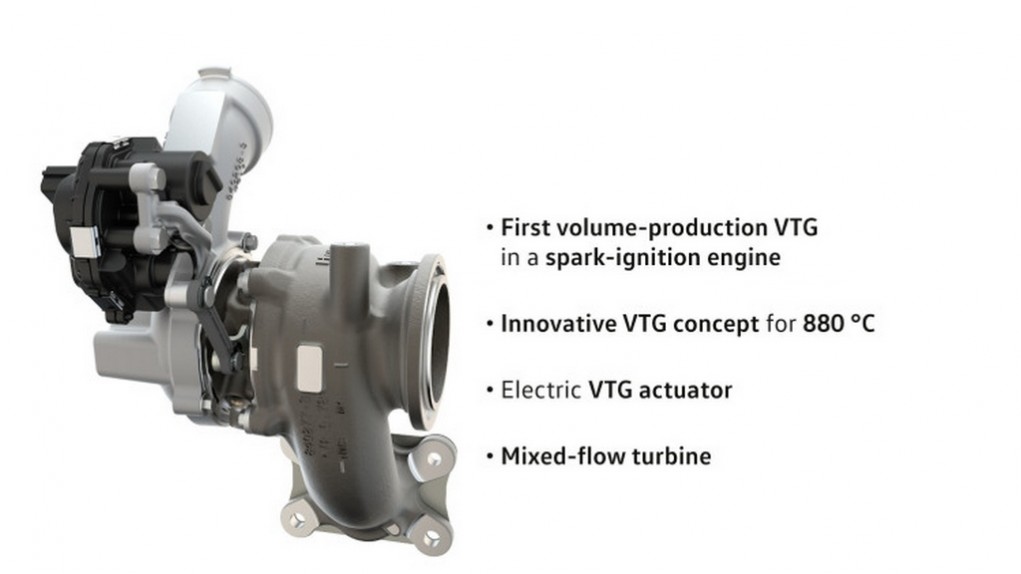
Volkswagen will be introducing its new generation EA211 TSI evo engine at the 37th edition of the International Vienna Motor Symposium. The 1.5-litre TSI is the first model of this new engine line-up with spark ignition technology. Set to be launched in late 2016, with the initial power outputs of 96 kW (130 PS) and 110 kW (150 PS), the main highlight of this power plant is the presence of exhaust gas turbocharger with electrically actuated VGT (Variable Geometry Turbine).
The 1.5-litre TSI evo will be the first mass produced spark ignition engine with improved fuel efficiency and torque according to VW and is expected to debut in the Golf, Skoda Octavia, Seat Leon and Audi A3 replacing the existing 1.4-litre TSI. The engine has been designed with new combustion process in mind and resultantly the torque will be available as low as 1,300 rpm in an instant – with the step change in load to the maximum torque occurs 35 per cent faster. The new engine family will be more frugal by up to one litre over one hundred kilometres compared to the current units.
For more than a decade, VW supplies direct injection and turbocharged spark ignition engines equipped with TSI technology. But this time around, several new innovations have been implemented like exhaust manifold with thermodynamic benefits, single-stage and two-stage turbocharging alongside integrated charge-air cooling. Another first is the employment of cylinder activation technology that cuts cylinders when not needed electronically to save fuel, in a four-pod motor.
The efficiency in the new EA211 TSI evo engine will be increased by up to 10 per cent in comparison to the outgoing 1.4-litre TSI with 92 kW and the spark ignition technology has evolved to play a significant role in mechanical and fuel efficiency. The other key revised and new features in the versatile engine model are: innovative thermal management, Atmospheric Plasma Spray coated cylinder walls, common rail injection system with up to 350 bar pressure and Miller combustion cycle with a high compression ratio of 12.5:1.
The cylinder head has been extensively re-engineered while the new map-controlled cooling module provides the engine with efficient thermal management. The cylinder liners in the aluminium crankcase for the 110 kW power variant are coated using the APS process and optimisations are made to the extensive friction package with the fuel injector tip reduced to 6 mm for better specific outputs.
The Miller combustion cycle’s improved thermodynamic efficiency are due to increase in the geometric compression ratio, reduction of the final compression temperature, increase in charge density via effective exhaust gas turbocharging and optimisation of the charge motion for rapid flame propagation to reduce knock. To maintain the overall compact package, the indirect charge-air cooler has been repositioned and it’s now situated in the pressure pipe before the throttle valve, reducing temperature of charge air to 15 Kelvin.
Next-Generation VW TSI Petrol Engine Image Gallery
Follow us on Facebook, Twitter & on Youtube







